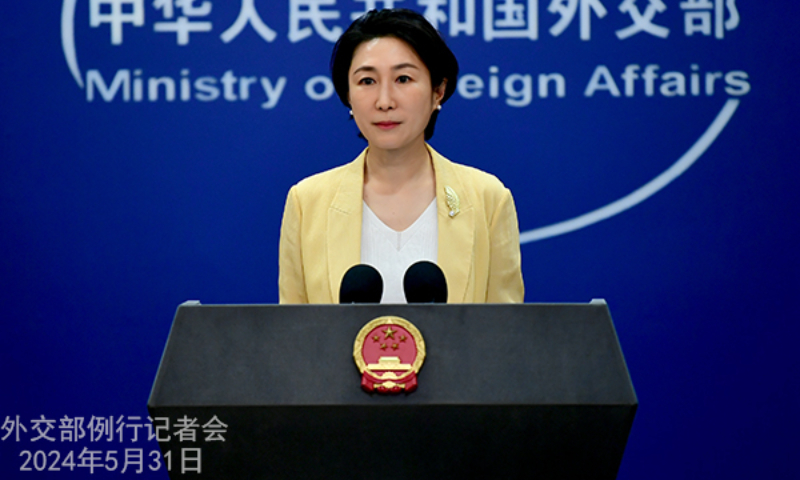
Chinese Foreign Ministry spokesperson Mao Ning Photo: fmprc.gov.cn
The Chinese Foreign Ministry on Monday said that China's Counterespionage Law targets the very few spying activities that are harmful to China's national security, not normal business and investment activity.
The comment came in response to a media question that since the revised Counterespionage Law came into force in July 2023, the German pharmaceutical sector has feared that the GMP or good manufacturing practice Inspectors who come to China could be punished.
As long as businesses operate lawfully and their personnel abide by the law, there's no need for concern, Chinese Foreign Ministry spokesperson Mao Ning told a regular news conference on Monday.
The revised Counterespionage Law took effect on July 1, 2023.
The revised law refines the definition of espionage, specifying acts such as carrying out cyberattacks against state organs, confidential organs or crucial information infrastructure as acts of espionage, the Xinhua News Agency reported.
It also properly expands the scope of targets of espionage, with all documents, data, materials and articles concerning national security and interests included for protection.
China is firmly committed to promoting high-standard opening-up and providing Chinese and foreign companies with a world-class pro-business environment that is market-oriented and law-based, Mao said.
During a press conference on Friday, the Ministry of Commerce (MOFCOM) pledged to introduce more measures to attract and encourage foreign investment.
The MOFCOM said it will continue to relax market access for foreign investment, eliminate restrictions in the manufacturing sector nationwide and expand opening-up in sectors such as telecommunications, the internet, education, culture and healthcare.
Additionally, it will revise the regulations to further relax restrictions on foreign investors' strategic investments in listed companies, and attract more high-quality foreign investment into the capital market.


